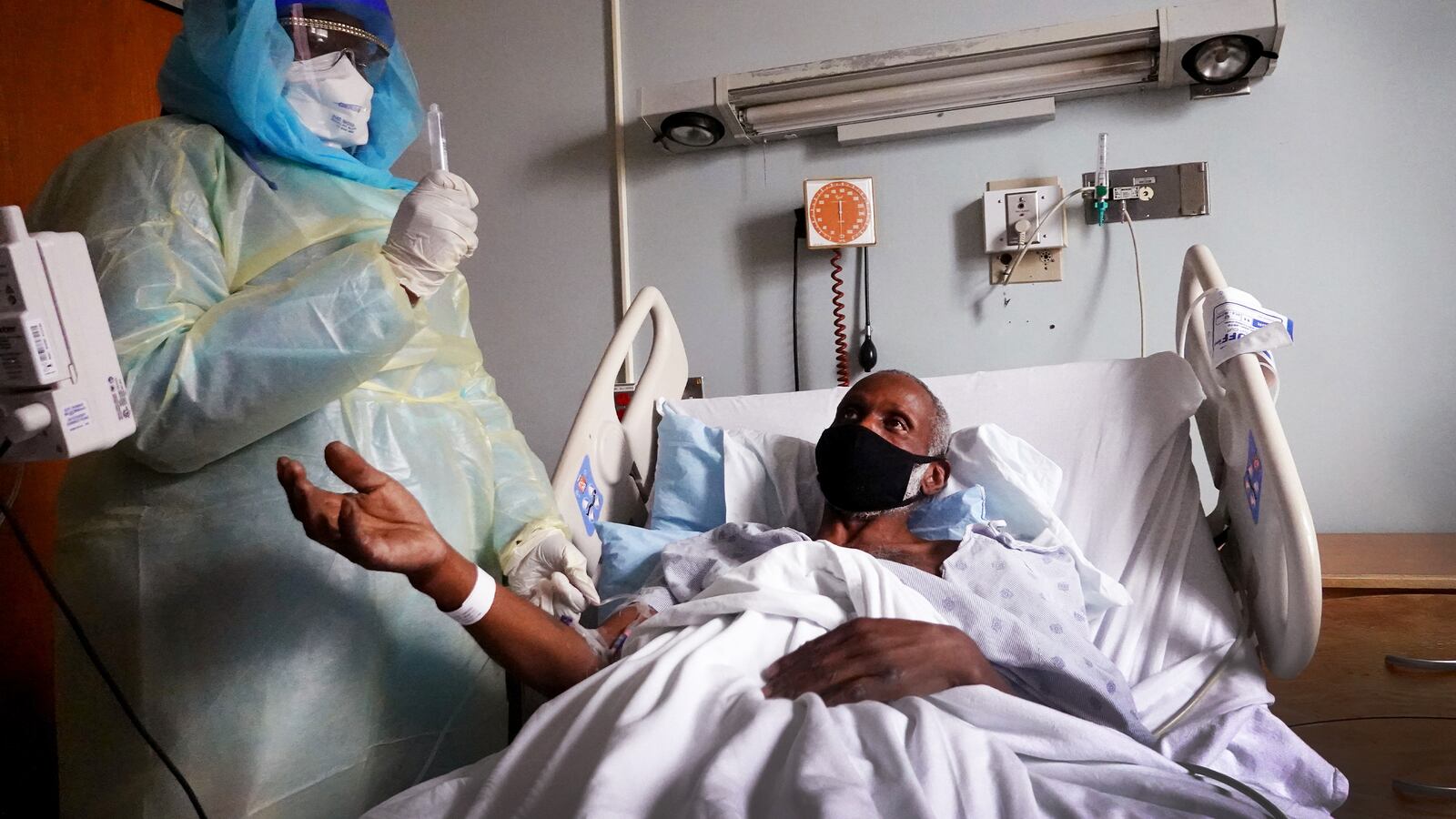A young patient in his early twenties went to see Dr. David Kaylie, an ear, nose and throat physician at Duke Health in North Carolina. He was an electrician, just starting his own company when he came in with hearing loss in both ears. After a lengthy wait because he was uninsured, an MRI revealed tumors in both ears. Dr. Kaylie eventually diagnosed him with Neurofibromatosis type 2, a condition in which patients develop tumors on their spine, brain and nerves. They often go deaf and have severe dizziness as a result. Although treatment is possible, it wasn’t available to this patient because he fell into the Medicaid coverage gap. Dr. Kaylie didn’t see him again for several years.
When he did return, he was gravely ill, and almost in a coma. After multiple surgeries to remove tumors that had grown unchecked, he was left completely deaf and disabled for life. He still has enormous tumors on his spine, causing him excruciating pain. Those could have been removed years earlier, when they were still small, but now the surgery would leave him a quadriplegic.
Stories like this of illness and even death abound throughout the Southern states that have not expanded Medicaid: North Carolina, Texas, Florida, Georgia, Alabama, Mississippi, Tennessee and South Carolina.
These are the stories of essential workers, mothers, fathers, and so many families who face deteriorating health, mountains of medical bills and a constant onslaught of impossible choices that force them to decide between paying for blood pressure medication, gas in their car or food on their tables.
These are the stories of people who live in these 12 states that have still not expanded Medicaid, leaving almost 3 million Americans languishing in what has come to be known as the “coverage gap.” They don’t qualify for Medicaid under the pre-ACA rules, and they are not eligible for health-care marketplace subsidies because they earn too little.
While the lack of health coverage for any Southerner is catastrophic, not every Southerner is affected the same way. The racial disparities in health outcomes for residents of states that have not expanded Medicaid are stark. In Tennessee, for example, Black adults are more than twice as likely as other adults to be uninsured. They also have worse heart disease outcomes, higher rates of cancer (and cancer-related deaths), diabetes, and diabetes-caused amputations.
Sixty percent of people in the coverage gap are Black, Latino, Indigenous or Asian. The effect has been nothing short of devastating.
The onset of the COVID-19 pandemic has only deepened these inequities. Throughout the country, COVID-19 has disproportionally affected people of color with significantly higher rates of infection, hospitalization and death. Those living in the South have not been spared. In Tennessee, although Black people in that state comprise just 17 percent of the population, they make up 32 percent of all COVID-related deaths. Overall, Black and Hispanic Tennesseans are three times more likely to get COVID and twice as likely to die from it.
The coverage gap is not just a Southern problem, it’s an American crisis that affects families throughout all 50 states. The pandemic has shown our nation that we are bound together in ways that we could not have imagined. As a country, we must act to ensure that our nation’s lowest-income workers and families can access lifesaving care for cancer, diabetes and all of the critical health issues that will follow the pandemic
There’s an opportunity now with the Build Back Better Act to guarantee that America won’t have a coverage gap ever again.
The reconciliation bill now being considered by the House Energy and Commerce Committee includes provisions to permanently eliminate the Medicaid coverage gap. It is the only health care policy in the Build Back Better Act that earmarks resources directly for low-income Americans who have no other way to obtain coverage.
It is not only urgent, but past time, to ensure that this measure becomes law and that the coverage gap is eliminated permanently. Congress simply cannot pass a plan in which these protections could lapse after a few years or leave any American uninsured and trapped in the unnerving reality of facing impossible choices for their families and their health.
State borders cannot and should not dictate access to affordable health care. We’re running out of time, and we may not get another opportunity to right the many decades-long wrong of unequal and biased access to health care in this nation. We need federal intervention now to ensure that millions of low-income Americans, most of whom are people of color, can finally access affordable and comprehensive health care.





